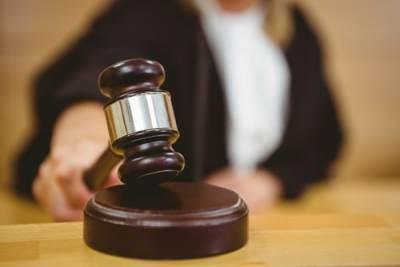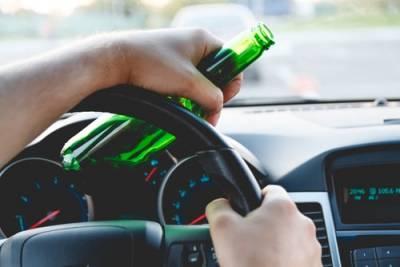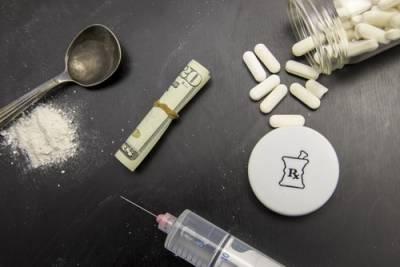Recent Blog Posts
Defending Juveniles Against Criminal Charges in Connecticut
 In the months of December and January, many young people in Connecticut experience significant extra free time while on winter break from school. During this time, holiday hijinks or unmonitored social time may sometimes result in a juvenile’s being saddled with criminal charges. Make no mistake, juvenile criminal charges in Connecticut are a serious matter and must be defended against accordingly.
In the months of December and January, many young people in Connecticut experience significant extra free time while on winter break from school. During this time, holiday hijinks or unmonitored social time may sometimes result in a juvenile’s being saddled with criminal charges. Make no mistake, juvenile criminal charges in Connecticut are a serious matter and must be defended against accordingly.
There exists a misconception that everything that happens in life before the age of majority, including juvenile criminal charges, are just magically wiped away at the age of eighteen. This is not the case. While the state’s juvenile justice system is charged with protecting the constitutional and legal rights of minors, it is not reasonable to assume that a juvenile conviction will simply disappear when the juvenile reaches 18 or 21 years of age. As such, it is imperative that a juvenile facing criminal charges in Connecticut be represented by an experienced Fairfield County juvenile criminal defense attorney.
Your Legal Rights Following a New Year’s Eve DUI Charge
 On New Year’s Day, there is a contingent of individuals both in Connecticut and the nation at large who are dealing with a DUI charge instead of mulling over new year’s resolutions at brunch. It is a most unpleasant way to begin 2018, yet is a reality that must be addressed promptly and professionally. This is the case for any DUI charge, and especially for a second, third, or subsequent charge. Multiple DUI convictions are punished strictly in Connecticut, with thousands of dollars and fines and several years of prison time being all too real possibilities. If are beginning the new year with the headache of a New Year’s Eve DUI charge, rely on an experienced Fairfield County DUI attorney to protect your legal rights.
On New Year’s Day, there is a contingent of individuals both in Connecticut and the nation at large who are dealing with a DUI charge instead of mulling over new year’s resolutions at brunch. It is a most unpleasant way to begin 2018, yet is a reality that must be addressed promptly and professionally. This is the case for any DUI charge, and especially for a second, third, or subsequent charge. Multiple DUI convictions are punished strictly in Connecticut, with thousands of dollars and fines and several years of prison time being all too real possibilities. If are beginning the new year with the headache of a New Year’s Eve DUI charge, rely on an experienced Fairfield County DUI attorney to protect your legal rights.
Connecticut Utilizes a Ten-Year Window with Regard to Repeat DUI Convictions
The measure for what constitutes a “repeat” DUI conviction in the state of Connecticut, is the ten years following your first DUI conviction. In other words, the ten-year clock begins running from the time of your first conviction. During this ten-year period, if you are convicted o DUI for a second, third, or subsequent time, you will face more serious consequences than if the new conviction occurred more than ten years after your first conviction. Specifically, for a second DUI conviction within ten years of the first, a fine between $1,000 and $4,000 will be imposed, as well as a jail sentence between 120 days and two years, a minimum of 100 hours of community service, and a three-year suspension of your driver’s license. In addition, you may be required to install an ignition interlock device at your own expense for a two-year period after your license is reinstated. Penalties for a third DUI conviction are still more severe, and include a fine between $2,000 and $8,000, a jail sentence between one and three years, 100 hours of community service, and the permanent revocation of your driver’s license.
Defending Against Assault and Battery Charges in Connecticut
 With school out of session on account of winter break and snow on the ground, actions that start out as mere mischief may get out of hand and rise to the level of torts and crimes. While it may seem inconsistent with the wintertime and holiday spirit, hitting someone with a snowball can bring serious consequences if injuries are sustained. The same is true for sledding-related horseplay that devolves into fist fighting. You may be charged with the crime of assault or battery, or sued in civil court for money damages. If you have been charged with assault or battery in Connecticut, you need an experienced Norwalk criminal defense attorney to protect your legal rights.
With school out of session on account of winter break and snow on the ground, actions that start out as mere mischief may get out of hand and rise to the level of torts and crimes. While it may seem inconsistent with the wintertime and holiday spirit, hitting someone with a snowball can bring serious consequences if injuries are sustained. The same is true for sledding-related horseplay that devolves into fist fighting. You may be charged with the crime of assault or battery, or sued in civil court for money damages. If you have been charged with assault or battery in Connecticut, you need an experienced Norwalk criminal defense attorney to protect your legal rights.
Defining Assault and Battery in Connecticut
In the general, common law sense, battery is a harmful or offensive contact. In Connecticut, more specifically, battery is the “willful application of force with the intent to cause bodily injury or offensive contact.” Assault, in the most basic sense, attempted battery. Specifically, under state law, assault is “attempted battery or the intent to cause another reasonable apprehension or contact.” In these two definitions, one can infer the importance of 1) intent and 2) whether or not contact actually occurs. Even if you have been unsuccessful in making contact, or merely intend to make another human being believe that you intend to make contact (but do not make contact), you may still be properly charged with assault in Connecticut.
Holiday Shoplifting Charges in Connecticut
 A shoplifting charge in Connecticut is a serious matter, whether levied in the holiday season or any other time of year. Depending on the value of the goods in question, penalties may be far more severe than a run-in with mall security or expulsion from a shopping center. Jail time, fines, and reputational damage capable of limiting one’s educational and vocational future are at stake. With so much on the line, a legal defense mounted by an experienced Fairfield County criminal defense attorney is an absolute must.
A shoplifting charge in Connecticut is a serious matter, whether levied in the holiday season or any other time of year. Depending on the value of the goods in question, penalties may be far more severe than a run-in with mall security or expulsion from a shopping center. Jail time, fines, and reputational damage capable of limiting one’s educational and vocational future are at stake. With so much on the line, a legal defense mounted by an experienced Fairfield County criminal defense attorney is an absolute must.
Shoplifting Is Larceny
If you have been arrested for shoplifting, the criminal charge you are facing is larceny. Connecticut penal law defines larceny as the “intent to deprive another of property or to wrongfully take, obtain or without hold such property from an owner.” Here, the word “intent” should jump out. Even if you are apprehended while attempted to shoplift, your intent, if proven if in a Connecticut criminal court, is grounds for a larceny conviction. In addition, larceny covers more than shoplifting; if you knowingly receive stolen property, you may be properly convicted of the offense. The same is true with regard to auto theft, embezzlement, false pretenses, and theft by fraud.
Defending against Holiday Office Party DUI Charges in Connecticut
 In the month of December, with holiday celebrations either already underway or imminently approaching, there is the risk of a Connecticut DUI charge. One such occasion in which this risk is encountered is the holiday office party. When alcoholic beverages are served as employees let off steam, vent about stress, and celebrate the close of the corporate year, consumption can lead to a Blood Alcohol Content (BAC) elevated beyond the legal limit for drivers in the state.
In the month of December, with holiday celebrations either already underway or imminently approaching, there is the risk of a Connecticut DUI charge. One such occasion in which this risk is encountered is the holiday office party. When alcoholic beverages are served as employees let off steam, vent about stress, and celebrate the close of the corporate year, consumption can lead to a Blood Alcohol Content (BAC) elevated beyond the legal limit for drivers in the state.
If you commute to work via subway, bus, train, carpool, or by foot, this scenario will not result in a DUI charge. However, if you drive to work and are unable to utilize public transportation, Uber, or Lyft after consuming holiday office party alcoholic beverages, you run the risk of being stopped and arrested for DUI if your BAC is over the legal limit. If holiday office partying has resulted in a Connecticut DUI charge, you need a Fairfield County DUI defense attorney.
When Repeated Circumstances Bring a Second Connecticut DUI Charge
 Wine, beer, and other alcoholic beverages are present at many holiday gatherings. While some beverages are consumed moderately and merrily, others are consumed for a different reason: stress. Visiting with family and friends can be difficult, especially in the current fraught national political climate, with old grievances and grudges lurking at the corners of contentious conversations.
Wine, beer, and other alcoholic beverages are present at many holiday gatherings. While some beverages are consumed moderately and merrily, others are consumed for a different reason: stress. Visiting with family and friends can be difficult, especially in the current fraught national political climate, with old grievances and grudges lurking at the corners of contentious conversations.
In the moment, whether in bidding a fond farewell or a good riddance goodbye after consuming multiple alcoholic beverages, one may make the mistake of getting behind the wheel to drive a vehicle. When this mistake turns into a Connecticut DUI or DWI arrest, the holiday is officially over. And when this mistake is, in fact, a second, third, or subsequent DUI or DWI arrest in Connecticut, interpersonal squabbles will quickly seem minuscule in comparison to the state-imposed penalties upon a criminal conviction.
Opioid-Related Drug Charges in Connecticut
 Connecticut, along with the rest of the United States, is in the midst of an opioid crisis. Opioids, the group of drugs that includes heroin and prescription painkillers such as fentanyl, oxycontin, and oxycodone, have killed tens of thousands of Americans – more people, in fact, than died in the Vietnam War.
Connecticut, along with the rest of the United States, is in the midst of an opioid crisis. Opioids, the group of drugs that includes heroin and prescription painkillers such as fentanyl, oxycontin, and oxycodone, have killed tens of thousands of Americans – more people, in fact, than died in the Vietnam War.
Since 2010, Connecticut has seen an increase in accidental death involving drugs, including opioids. Faced with such a scourge, state and federal law enforcement are tasked with fighting the possession, use, and distribution of these dangerous and all too often deadly drugs. If you have been charged with an opioid-related drug offense, you will face serious consequences if convicted. For your legal rights and your future, it is imperative that you task an experienced Fairfield County criminal defense attorney with your legal defense.
Opioid Possession is Punishable by Jail Time and Fines in Connecticut
Obtaining Representation in Defense of College Campus Criminal Charges
 If you have been charged with rape, sexual assault, sexual battery, or other sexual misconduct while attending a university in the state of Connecticut, it is imperative that you secure legal representation experienced in the defense of crimes alleged to have been committed on college campuses. If convicted you face jail time, expulsion from your university, a lifetime of reputational damage, and long-term educational and vocational barriers. When so much on the line, when the consequences are of the utmost gravity, an experienced Fairfield criminal defense attorney is a critical resource.
If you have been charged with rape, sexual assault, sexual battery, or other sexual misconduct while attending a university in the state of Connecticut, it is imperative that you secure legal representation experienced in the defense of crimes alleged to have been committed on college campuses. If convicted you face jail time, expulsion from your university, a lifetime of reputational damage, and long-term educational and vocational barriers. When so much on the line, when the consequences are of the utmost gravity, an experienced Fairfield criminal defense attorney is a critical resource.
Criminal Defendants Are Guaranteed Rights Under the Constitution
Legal representation in the wake of sex crimes allegations and charges is focused on the protection of your legal rights. When arrested, for example, the Constitution demands that the arresting officer inform you of your rights under Miranda v. Arizona to remain silent and to have an attorney, whether obtained at your own expense or appointed for you. From the time of arrest, constitutional rights, under the Fourth and Fifth Amendments, are retained during time spent in police custody, including during any instances police interrogation.
Sex Crimes Charges Are a Very Serious Matter from California to Connecticut
 Last month, bombshell allegations were leveled at famed Hollywood producer Harvey Weinstein, ultimately resulting in his termination by the board of directors at his own company. Weinstein, along with his brother Bob, had previously been known best for Oscar-winning films produced by Miramax in the 1990s and Weinstein Brothers in the years since. While no legal charges have yet been leveled against Weinstein for his three decades of sexual misconduct, it stands to reason that a victim could in theory come forward.
Last month, bombshell allegations were leveled at famed Hollywood producer Harvey Weinstein, ultimately resulting in his termination by the board of directors at his own company. Weinstein, along with his brother Bob, had previously been known best for Oscar-winning films produced by Miramax in the 1990s and Weinstein Brothers in the years since. While no legal charges have yet been leveled against Weinstein for his three decades of sexual misconduct, it stands to reason that a victim could in theory come forward.
Many of Weinstein’s previous victims, commonly women striving to make or maintain a career in the film industry, had been paid large sums of money in exchange for their silence with regard to Weinstein’s sexual misconduct. Known by insiders to be naked in the workplace – sometimes Los Angeles area hotel suites – Weinstein pressured actresses, including Ashley Judd, to give him a full body massage, neck massage, and watch him shower naked, among other things. Ms. Judd refused on all accounts, but other actresses, according to reports, left Mr. Weinstein’s hotel room “feeling violated.” More news is sure to come in the days following.
Defending Against Criminal Charges in the Juvenile Context
 The wind blows especially cold for some as October draws to a close and November marks the year’s turn toward winter. Halloween: an occasion for innocent costume donning and candy-crazed merrymaking for the young. For pre-teens and teenagers, however, All Hallows Eve can get out of hand, drastically so, with partying or misbehavior resulting in criminal charges ranging from alcohol and drug-related offenses to property damage or theft to violence to even sex crimes. For a juvenile facing one or more criminal charges in the state of Connecticut, a strong legal defense raised by an experienced Norwalk criminal defense attorney is a must.
The wind blows especially cold for some as October draws to a close and November marks the year’s turn toward winter. Halloween: an occasion for innocent costume donning and candy-crazed merrymaking for the young. For pre-teens and teenagers, however, All Hallows Eve can get out of hand, drastically so, with partying or misbehavior resulting in criminal charges ranging from alcohol and drug-related offenses to property damage or theft to violence to even sex crimes. For a juvenile facing one or more criminal charges in the state of Connecticut, a strong legal defense raised by an experienced Norwalk criminal defense attorney is a must.
Juvenile Criminal Charges Can Have Long-Term Consequences
Dangerous misconceptions about the juvenile justice system abound, tempting parents and children alike to underestimate the long-term impact of a juvenile conviction. Even a minor child can be sent away upon conviction for a year or more. In addition, even if a juvenile conviction is expunged from a child’s criminal record upon reaching the age of 18 or 21, the conviction can still have devastating effects upon the child’s ability to reach his or her full educational or vocational potentially.







